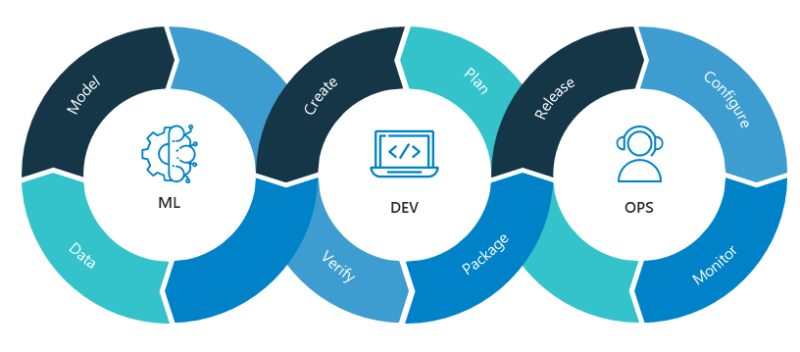1 min to read
What is MLOps?
Importance of the mlops approach

MLOps
MLOps, short for Machine Learning Operations, is a set of practices and tools used to streamline and automate the end-to-end machine learning (ML) lifecycle, from model development to deployment and monitoring. It combines elements of DevOps (Development and Operations) with ML to improve the efficiency, reliability, and scalability of machine learning systems. MLOps aims to bridge the gap between data science and IT operations, ensuring that machine learning models are not only accurate but also reliable and maintainable in production environments.
Key Components and Practices
-
Version Control: Using tools like Git to manage and track changes to machine learning code and data.
-
Automated Testing: Implementing automated testing for model performance, data quality, and other relevant metrics to catch issues early in the development process.
-
Continuous Integration and Continuous Deployment (CI/CD): Applying CI/CD principles to machine learning pipelines to automate the testing and deployment of models.
-
Containerization: Packaging machine learning models and their dependencies into containers (e.g., Docker) for consistency across different environments.
-
Orchestration: Using tools like Kubernetes to manage the deployment and scaling of machine learning services.
-
Monitoring and Logging: Implementing robust monitoring and logging systems to track model performance, data drift, and other relevant metrics in production.
-
Model Versioning: Keeping track of different versions of trained models and their associated data.
-
Model Registry: Storing and cataloging models for easy retrieval and deployment.
-
Security and Compliance: Ensuring that machine learning systems meet security and compliance requirements, especially in regulated industries.
-
Collaboration and Documentation: Encouraging collaboration among data scientists, engineers, and other stakeholders while maintaining clear and well-documented processes.
MLOps practices help organizations deploy machine learning models more quickly, reliably, and at scale, reducing the time and effort required to move from experimentation to production. This is especially important as machine learning becomes increasingly integral to various industries and applications.

Comments